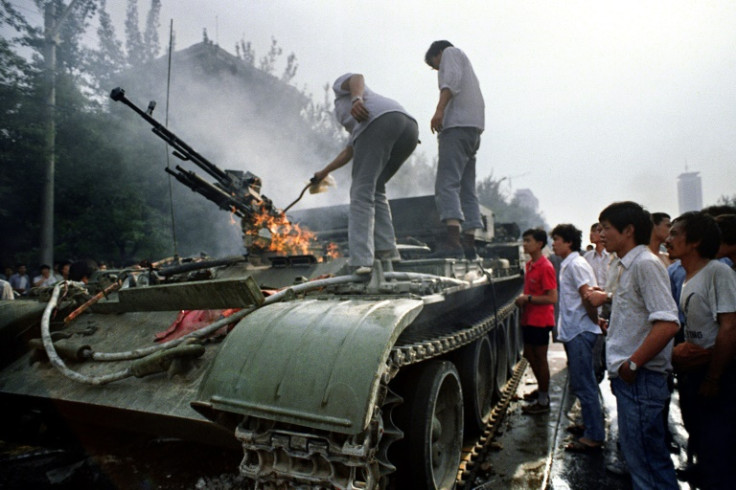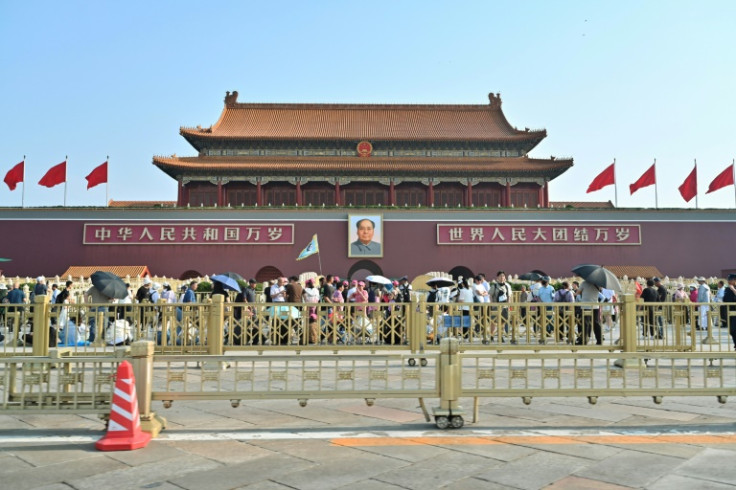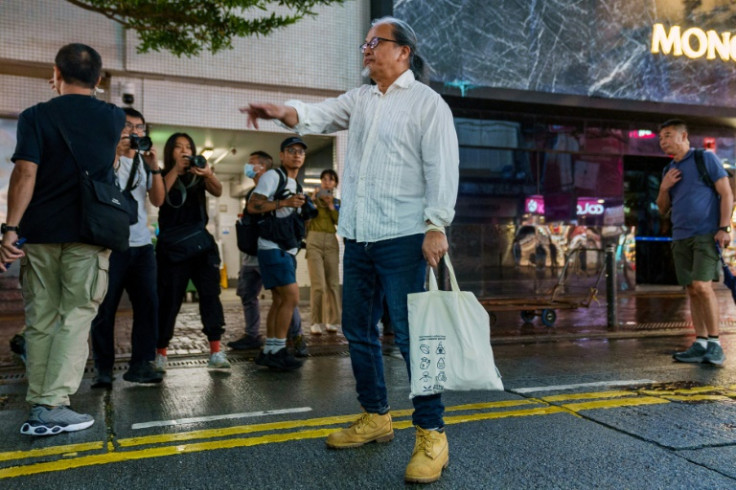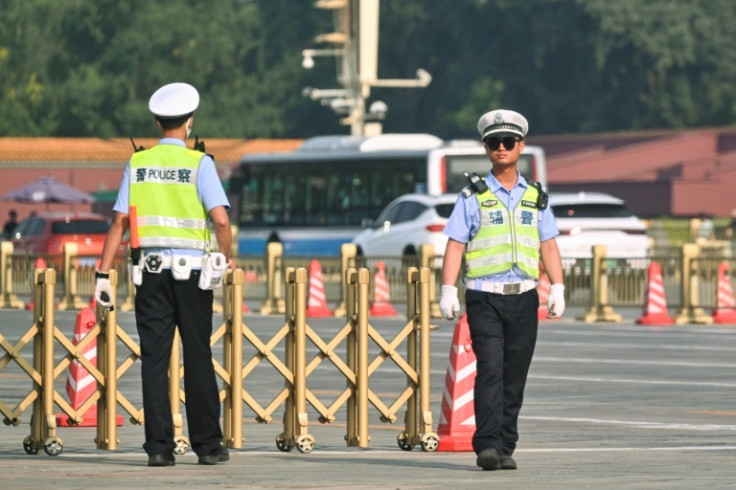Taiwan President Vows To Remember China's Tiananmen Crackdown

Taiwan's new President Lai Ching-te said Tuesday that the memory of Beijing's deadly crackdown at Tiananmen Square "will not disappear in the torrent of history", in a post marking the event's 35th anniversary.
Chinese troops and tanks forcibly dispersed peaceful protests in Beijing's Tiananmen Square on June 4, 1989, quelling huge, weeks-long demonstrations demanding greater political freedoms. Decades on, China still censors any mention of the crackdown.
Since he was sworn in as president, China has repeatedly lashed out against Lai, branding him a "dangerous separatist" and a "saboteur of peace and stability".
His inauguration in May prompted Beijing to launch military drills around Taiwan, which China claims as part of its territory.
"We will continue to work hard to keep this historical memory alive and touch everyone who cares about Chinese democracy," Lai said in a Facebook post.
"Because this reminds us that democracy and freedom are not easy to come by, we must... respond to autocracy with freedom, face the expansion of authoritarianism with courage."
Taiwan is scheduled to hold an annual vigil to mark Tiananmen at 6:40 pm (1040 GMT) at Taipei's Chiang Kai-shek memorial hall.
Lai's Democratic Progressive Party has long defended the sovereignty and democracy of Taiwan, which has its own government, military and currency.
In his Facebook post Tuesday, Lai said that "a truly respectable country is one where people speak out".
"Any regime should face up to the voice of the people... because social change often depends on diverse opinions," he said.
"In the future, we will continue to unite all forces to deepen democracy in Taiwan, and work with like-minded countries to build a better world."
China's Tiananmen crackdown killed hundreds of people, with some estimating the death toll was higher than a thousand.
Beijing described the events as riots, while rights groups and exiled dissidents depict it as a massacre of innocent people, including many students.
Many young people today in China are unaware of the 1989 events due to the wide-reaching censorship.
Asked about the anniversary on Monday, a Chinese foreign ministry spokesperson said the government "has long since reached a clear conclusion with regards to the political turmoil that occurred in the late 1980s".
In Beijing early Tuesday, tourist groups visited Tiananmen Square donning matching neon hats and posing for pictures beside the mausoleum of China's founding leader Mao Zedong.
The police presence was no heavier than usual at the square, with officers posted at every corner, some directing traffic while others observed passers-by through binoculars.
Australia's foreign minister Penny Wong said the international community remembers "the tragic events and loss of life on 4 June 1989".
"As we have consistently said, Australia remains concerned about ongoing restrictions on freedom of association, expression and political participation in China," she said in a statement Tuesday.
Activist groups from London to Washington are planning events to commemorate the crackdown.
But in Hong Kong, once the sole place on Chinese soil where public commemoration was allowed, an annual vigil has been banned since 2020, the year that Beijing imposed a national security law to quell dissent.
The city's Victoria Park, which prior to the ban drew tens of thousands each year, was on Tuesday the site of a carnival promoting food and culture of Chinese cities.
Local media has said hundreds of police officers are expected to descend around the area by nightfall.
On Monday, Hong Kong artist Sanmu Chen was briefly detained after he appeared to trace the Chinese characters for "8964" -- representing the anniversary's date -- in the air. Police said he was later released.
In the week leading up to the anniversary, Hong Kong police arrested eight people over commemorating the Tiananmen crackdown on social media, with authorities accusing them of publishing "seditious" online posts.
When asked about whether any public remembrance of June 4 was permitted, Hong Kong leader John Lee said Tuesday that "some people are hijacking the issue... as a pretext to stir up troubles".
"The threat to national security is real... any activities that contravene the law, law enforcement agencies will take action accordingly," Lee warned.



© Copyright AFP 2025. All rights reserved.





















